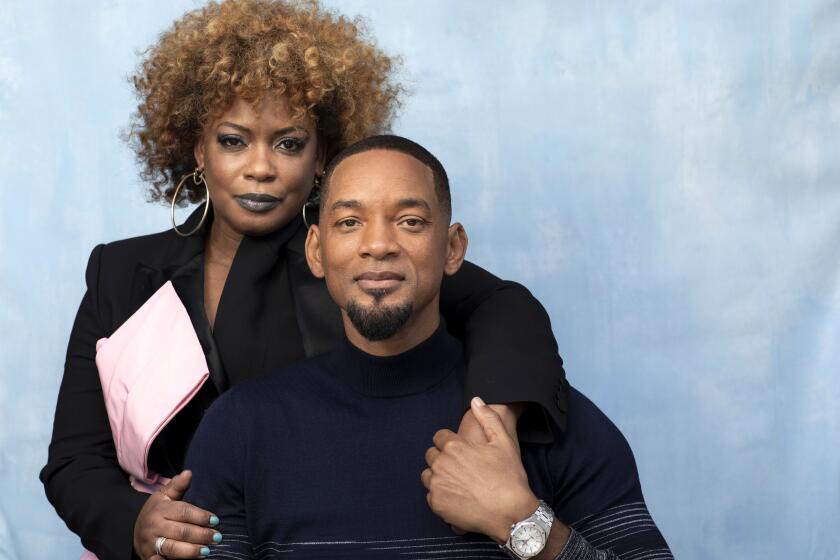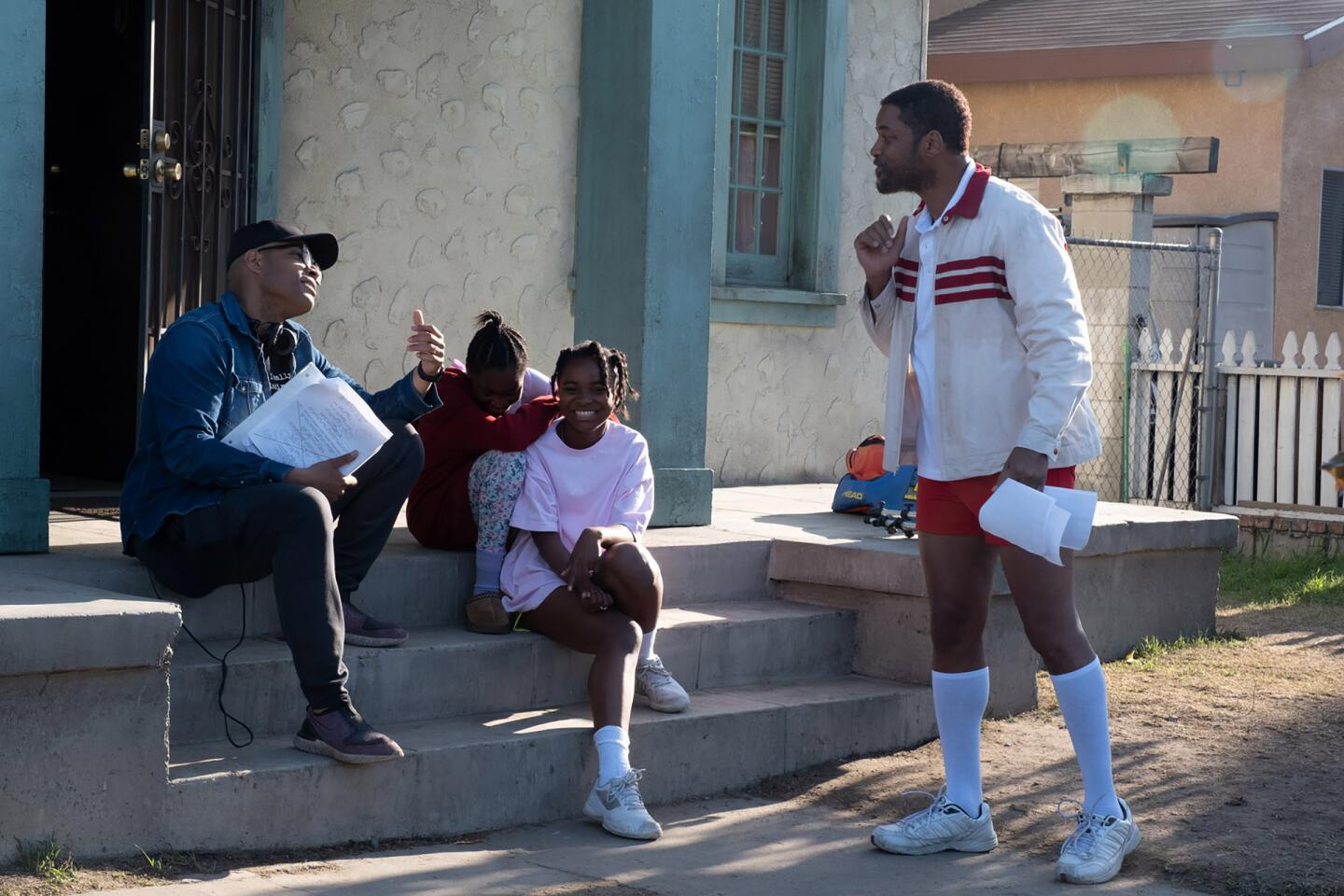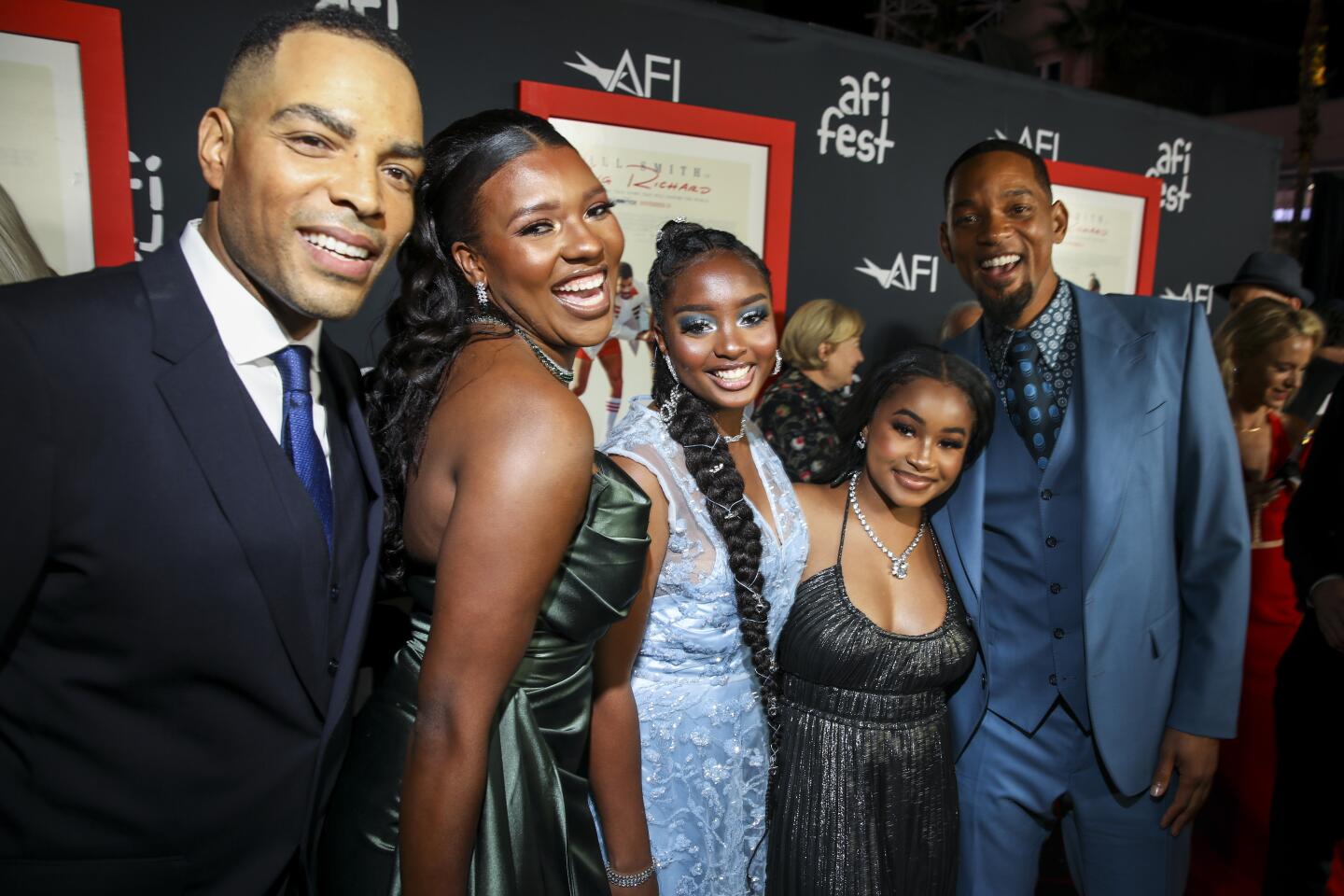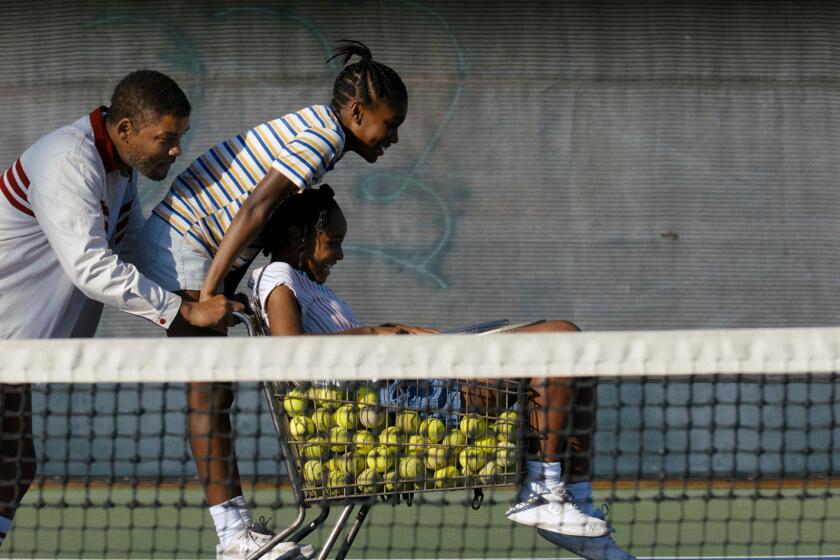How ‘King Richard’ brought a controversial sports figure to the screen. With his family’s approval
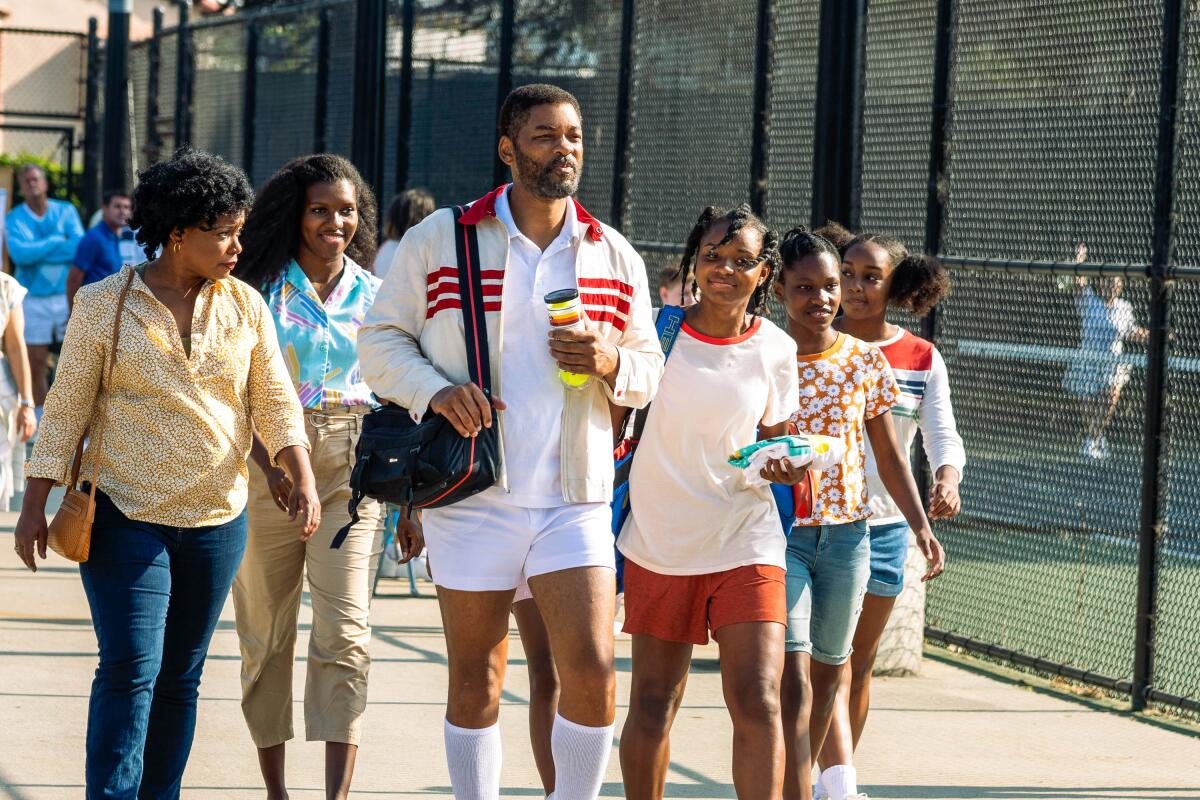
Richard Williams’ daughters were apprehensive when they got the offer. Yet another script had come in hoping to tell the story of Venus and Serena’s meteoric rise to tennis fame — and the man with the plan at the heart of it all.
Would this script, written by Zach Baylin, authentically capture the Williams patriarch or further sensationalize the narrative that his larger-than-life personality had garnered in the press? His daughter Isha Price anticipated the latter. “I had been sent stuff before, [so] I didn’t really take it seriously,” she said by Zoom while babysitting Serena’s daughter Olympia.
The studio sent over a watermarked copy of the script, which she promptly lost. After her assistant printed out a second copy, she “really dug in.” “And after I read the whole thing, [my mom] was like, ‘So what do you think?’”
Price told her that it was actually a very good script and had a lot of promise, “it’s just missing the heart of who we are.”
‘King Richard’ stars Will Smith and Aunjanue Ellis on the pressures and joy of portraying living icons and finding the emotional truth of Richard and Oracene Williams’ relationship.
“Because everything [included] was what you could research about my family,” she said. “But they hadn’t talked to any of us personally. And so my mother was like, ‘Well, do you think it’s something that we should do?’ I was like, ‘Mommy, I think at the end of the day, somebody’s going to tell the story, so we either have a part in it or we don’t.’”
That’s how Price became an executive producer on Warner Bros.’ “King Richard,” starring Will Smith and Aunjanue Ellis as Richard Williams and Oracene Price, and Saniyya Sidney and Demi Singleton as Venus and Serena, respectively. “The family consensus was if we do it, [I would] have to be the boots on the ground every day,” Price said. “Because we didn’t trust. There are so many things that have been put in the media that aren’t true. So [we had] just a little bit of trepidation.”
“Richard Williams has always been portrayed one way in the media,” said director Reinaldo Marcus Green by Zoom. “He was sort of a controversial figure, which is very rich in terms of storytelling. But what was really interesting was hearing the family’s perspective and knowing the love, time and commitment that Richard and Oracene gave to those girls.”
To ensure the most accurate portrayal possible, Green read Richard Williams’ memoir, “Black and White: The Way I See It,” and enlisted four of Williams’ daughters to join the crew: Isha, Venus and Serena as executive producers and Lyndrea Price as a costumer. And he flew to Florida to meet with Oracene and Venus (and later Serena). But still they held off on accepting the producing credits until the very end.
“My sisters were kind of like, wait and see,” Price said. “We wanted to be executive producers but we didn’t want the studio to give us the okey-doke and come out with what they wanted to tell versus the truth and what we wanted to tell.
“Mind you, all along this process I’m in the [group] chat going, Do you remember this? Do you remember that? How did this make you feel?” she added. “So we were all a part of it every step of the way. Plus Lyn was on set, so at the end we were just confident that the work was going to be great. And that’s when I called our attorney and was like, ‘We’re ready now to go ahead and take credit.’”
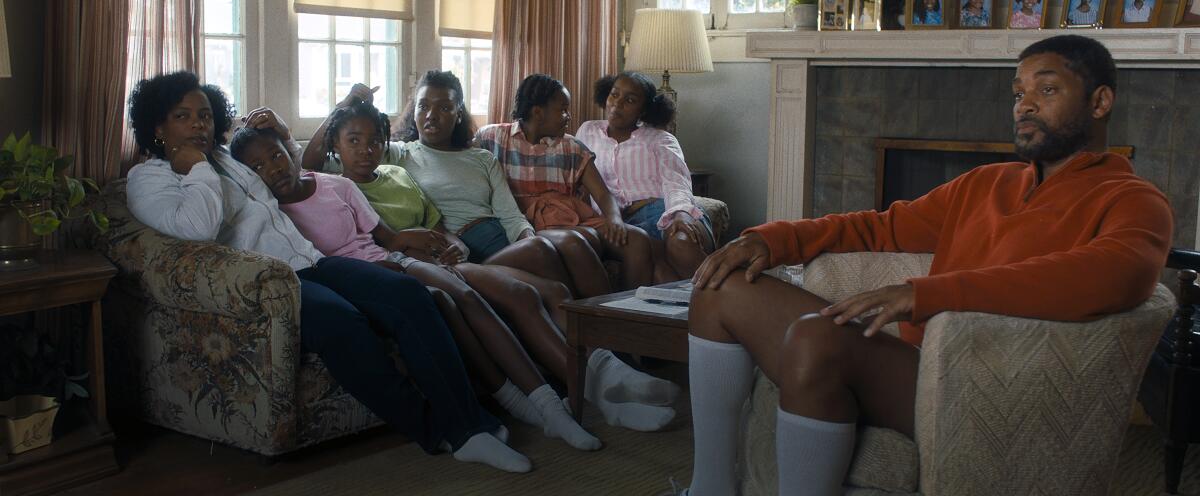
Although “King Richard” centers on Richard Williams and his plan that unerringly mapped out his daughters’ tennis success against all odds, the dream was made possible only through the entire family’s support.
“They’re not two girls, they’re five,” Green said. “They’re five Black girls in a VW van. Five Black girls [sharing] a bedroom. And that part of the family aspect makes it a much richer story because it’s what we don’t know about them. It was a full family affair.
“And to learn the older sisters were there picking up balls and devoted their lives to being there for their younger siblings, that’s an amazing story to me,” he added. “That’s ‘Little Miss Sunshine’ with Black people. It’s monumental, the love that they had.”
That’s an amazing story to me. That’s ‘Little Miss Sunshine’ with Black people. It’s monumental, the love that they had.
— Director Reinaldo Marcus Green on the Williams family dynamic
For Price, reliving that point in her life was often challenging. “Sometimes it was hard, I’ll be honest,” she said. “And when people are trying to encourage you to do something, they’ll say anything. ‘Oh, it’s going to be so cathartic for you. It’s going to be so great, you’ll see.’ Let me tell you something. It was hard.”
Particularly the scenes featuring her late sister Yetunde (played by Mikayla Bartholomew), who was killed in a shooting in 2003. “Because she was such an integral part of our sisterhood, that part is still quite challenging for all of us,” Price said. “Mikayla did such an amazing job in capturing her essence and she really wanted to get it right. So she would ask questions just wanting to understand her and what it was like for us. [Because] the hardest part was leaving California [for Florida] and her not going with us. That was crazy.”
The first time Price saw the movie in full, “I cried like a baby,” she said. “Probably the first 10 times that I saw it. I cried, I laughed. And to see how it affected everybody else made me emotional too. It connects with so many people for so many reasons on so many different levels, and it made me proud to be a part of it the way that I was.”
Having an actor play her younger self was “really weird,” Price says. “It’s so crazy because Daniele [Lawson] was like, ‘Man, I got it the best because I get to be around the teacher all the time.’ Literally this young lady mimicked me in a way that was like, ‘This is crazy.’ So it was very, very strange. But we’ve grown close to these young ladies in a way that is surprising. They really did a great job, all of them.”
Although Richard Williams himself never directly spoke with any members of the cast or crew, Green and Baylin along with producer Tim White flew to South Florida to meet with Venus and Oracene, recording hours of interviews for Ellis to draw from.
“One of the things I remember her saying was, ‘Don’t make me a chump,’” Green remembered.
“It was interesting because in one of the original iterations of the script, when Daddy had gotten beaten up one time, my mom met him at the hospital and was running alongside the gurney going, ‘What did they do to my husband?’” Price said. “I was like, ‘Oracene? Never.’”
Price had been reading the script during the European leg of one of her sisters’ tennis tours. When she got to that part she laughed out loud.
“My mom was like, ‘What you laughing at?’ And I read her that part and she goes, ‘Oh, heck no!’” The scene was changed to depict Oracene, a trained nurse, patching her husband up at the kitchen table.
“They were very specific about certain things,” Green said. “I remember when I met Venus, she just said, ‘Look, Serena is the kind of sister that would skip a match to see me practice. That’s how close we are.’ They were very receptive to the filming process and never wanted to get in the way so long as it wasn’t wrongly depicting something.”
“There were a couple of things that I saw differently,” Price said with a laugh. “But working with Rei, he just brought a consistent energy to set. Even if we were tired, Rei would be in there clapping, getting everybody together. [He’s] as amiable as they come. It was a very collaborative effort, and he was always right in terms of what he fought for when we would have a difference in opinion. And he listened, which was really awesome.”
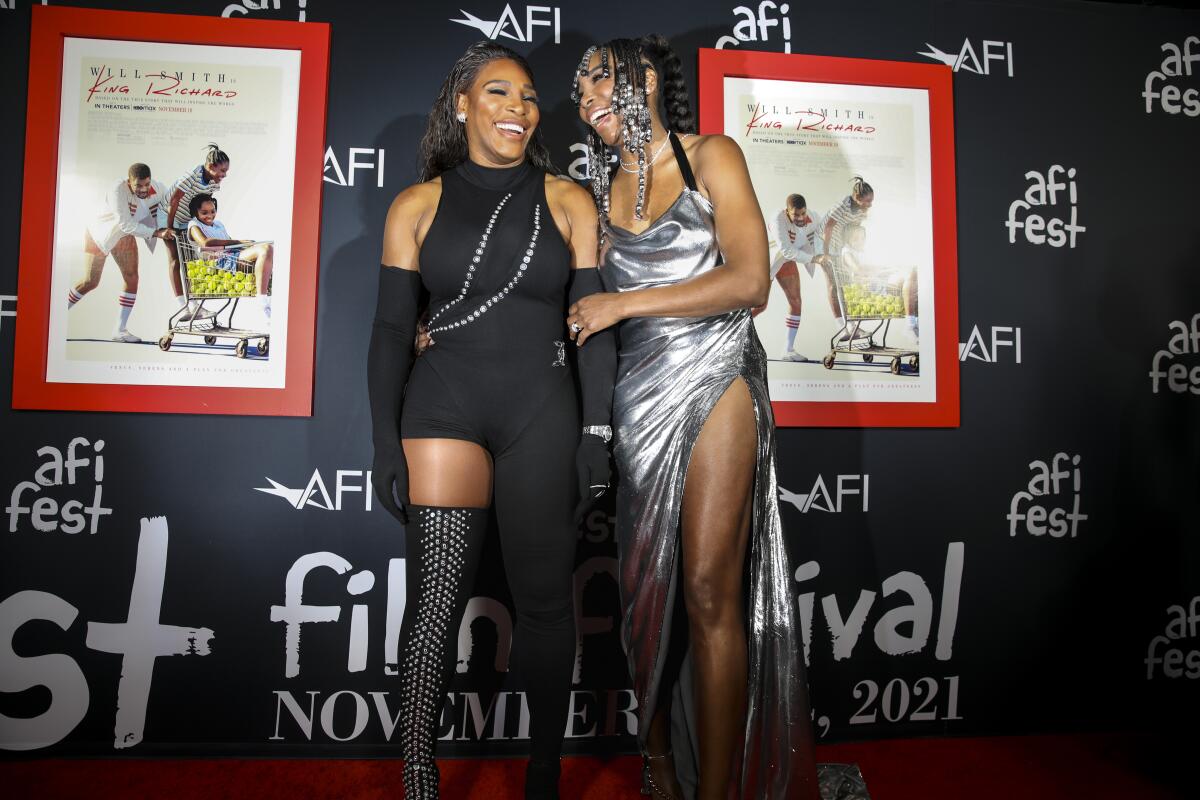
Most of Price’s concerns involved how her father would come across. “That part was a little challenging for me to understand because Daddy is very much like, ‘Listen, this is how it’s going to be.’ But then when he dealt with us, he was a softer, kinder, gentler person. And Rei really wanted to share that part of his personality and not just the guy interrupting the interview or [being gruff with] the agents. There had to be a difference between the way that he dealt with us kids or my mom and the way that he dealt with the outside world.
“And in the end, even in the edit he was like, ‘If you’re not happy with it, we can switch it.’ There are a couple of things that we did switch and change, but the end product is absolutely something that I feel is the best depiction and the best duality of the comprehensive man that my dad is.”
She’s still not quite sure whether her dad has seen the film. He has a copy but hasn’t said anything about it one way or the other. “And as Venus said, ‘Daddy could’ve watched it and just hasn’t told us,’” Price said. “So we don’t quite know.”
“Every time I ask him he’s like, ‘Oh, I had a meeting. I don’t have time to watch that right now.’ ... I’d like to think he has [seen it] and he feels really good about it. I mean, he hasn’t called and yelled at me.”
Director Reinaldo Marcus Green felt a personal connection to the story of Venus and Serena Williams’ childhood in “King Richard.”
More to Read
Only good movies
Get the Indie Focus newsletter, Mark Olsen's weekly guide to the world of cinema.
You may occasionally receive promotional content from the Los Angeles Times.
